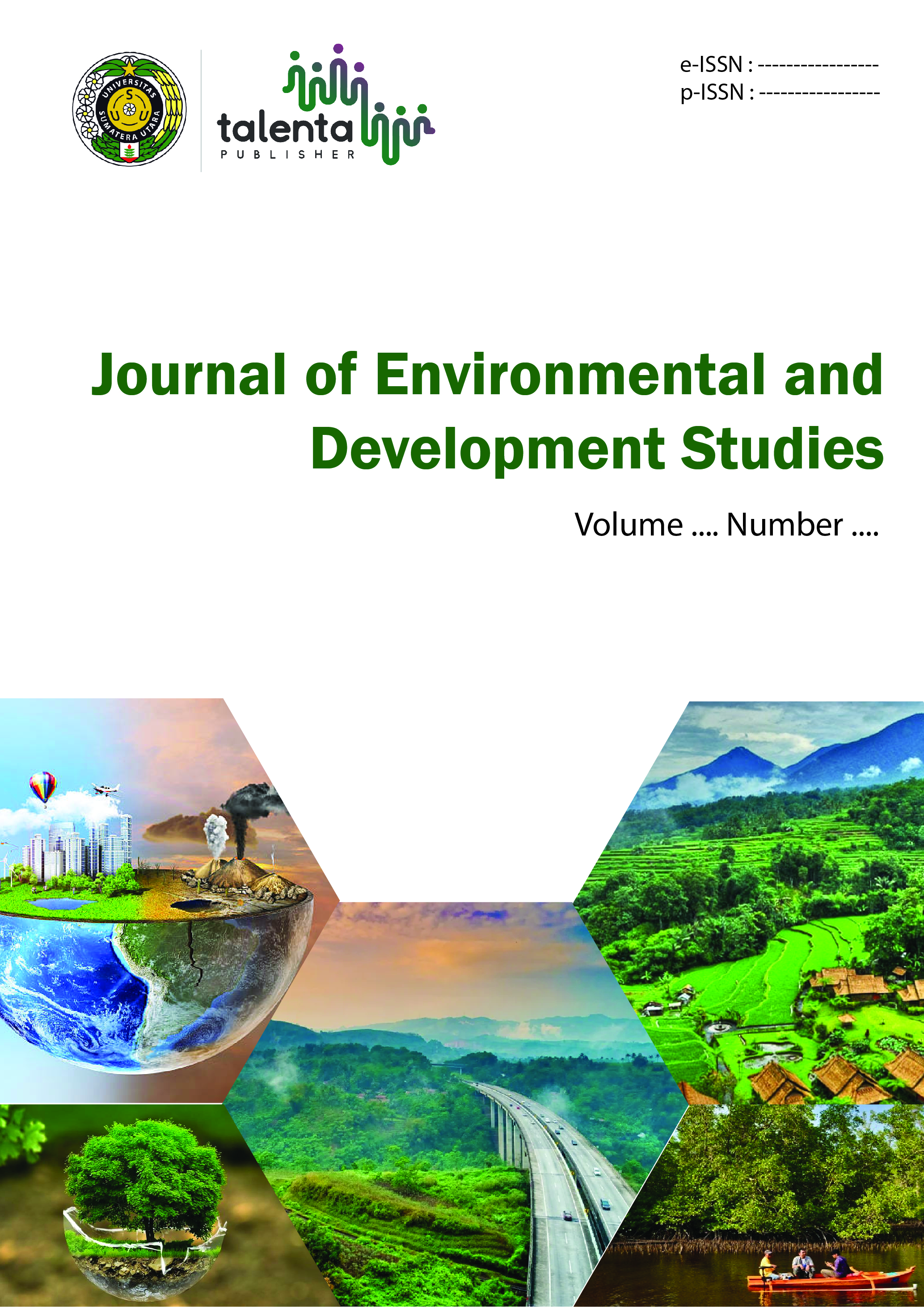New Template
New template can be access here
Read more about New TemplateJOURNAL OF ENVIRONMENTAL AND DEVELOPMENT STUDIES (JEDS)
 |
The Journal of Environmental and Development Studies (JEDS) is a peer-reviewed academic journal published by TALENTA, the official journal publisher of Universitas Sumatera Utara. The university's Postgraduate School oversees it. Published biannually in March and September, the journal features articles in English and adheres to national and international scientific publication standards. Journal of Environmental and Development Studies (JEDS) is an academic platform for graduate students, academics, researchers, and practitioners to exchange and publish original research and comprehensive review articles in environmental and development studies. The journal is available online (ISSN 2745-4592) and supports open-access publishing, ensuring free public access to all published works. While submissions are accepted in both English and Bahasa Indonesia, articles submitted in Bahasa Indonesia will incur a translation fee. In line with its mission to promote scientific advancement, JEDS adheres to an open-access policy. |
| Published articles are regularly indexed in Google Scholar, the Indonesian Publication Index (Garuda Portal), and other esteemed indexing platforms. After two years of publication, the journal will also be registered with the Indonesian Ministry of Education, Culture, Research, and Technology to pursue national accreditation (SINTA). | |
| Journal title | : Journal of Environmental and Development Studies |
| Abbreviation | : J. of Environmental and Development Studies |
| Initial | : JEDS |
| Frequency | : 2 (two) issues per year |
| ISSN (Online) | : 2745-4592 |
| Digital Object Identifier (DOI) | : 10.32734 (Member of Crossref) |
| Editor-in-Chief | : Prof. Ir. T. Sabrina, M.Agr.Sc., Ph.D |
| Managing Editor | : Isnen Fitri, S.T., M.Eng., Ph.D and Dr. Salmina Wati Ginting, S.T., MT |
| Publisher | : TALENTA Publisher, Universitas Sumatera Utara |
| Citation Analysis | : Google Scholar |
| Visitor Analysis | : on progress (Sponsored by StatCounter) |
New template can be access here
Read More Read more about New TemplateAccess Policy:

Journal of Environmental and Development Studies (JEDS)
Postgraduate School of Universitas Sumatera Utara
Jalan Prof. Maas Kampus USU Padang Bulan
Medan 20155, Sumatera Utara - Indonesia
Phone : 061-8212453
Email : jeds@usu.ac.id

This work is licensed under a Creative Commons Attribution-ShareAlike 4.0 International License.